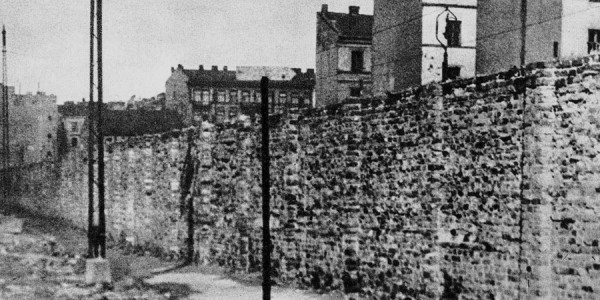Who Will Write Our History?
12/02/2020 | Na stronie od 16/02/2020

BY Agnieszka Michalik Jewish Journal
The Polish Jewish magazine Chidusz recently published an article titled “Who Has Written the Jewish History?” about Polish Wikipedia pages relating the history of Polish Jews. Since my grandmother Joanna was a Holocaust survivor from Lviv (then Lwów) and lost her whole family during World War II, this article caught my attention, motivating me to explore the page “History of Jews in Poland.”
When it comes to Jews living under the Soviet occupation during World War II, Wikipedia users two quotations about Lviv, referencing negative behavior of Jews; this took up nearly the half the page space. The second bit of information describes how Jews greeted the Bolsheviks entering the city with flowers and “kissing their tanks.” Moreover, the Wikipedia author(s) wrote about the “provocative” attitude of Jews toward Poles, apparently pointing to the fact that Poland did not exist anymore.
These ideas came from a controversial book by Polish American historian Marek Jan Chodakiewicz. They personally affected me. Certainly a few single Jews could have been communists, but not 100,000 inhabitants of the city, nor my grandmother’s family. Not to mention that 99.5% of Jews perished under tragic circumstances during the war.
Michał Bojanowski, editor-in-chief of Chidusz, analyzed the Wikipedia page, starting from World War I, by inspecting the edits and the actions of the main contributors (some of whom mentioned their nationalistic and Catholic views in their profiles). Bojanowski’s article impresses, being an exhaustive documentation of manipulations on the website.
The webpage repeats certain clichés. In the context of rebuilding the Polish state from 1918-1920, it puts an emphasis on Jewish willingness to create an autonomy that supposedly was more important to the Jews than the independence of the Polish state. In the section about anti-Semitism, user Jakubkaja wrote about “voluntary ghettos” — places where Jews isolated themselves from Catholic Poles, implying they did not assimilate on purpose, to preserve their religious and national identities. Jakubkaja also added a comment, based on Paweł Wieczorkiewicz’s thesis, that Jews initiated some anti-Jewish incidents by murdering Poles. An anonymous user later removed this controversial idea.
The section about the Warsaw ghetto uprising in Polish still is illustrated with the Wehrmacht propaganda photo of Jews playing cards.
In April 2015, user Mathiasrex created a section about the construction of Jewish autonomy under German occupation and excluded it from the paragraph dealing with the Holocaust. He wrote that the Jewish community “immediately established contact with the German occupation authorities” and started to build autonomies called ghettos. He added pictures illustrating the concept of the autonomies: a banknote from the Łódź ghetto with a menorah, a view of the Warsaw ghetto wall, an announcement by the Jewish ghetto police and a photo of Jews in a nightclub in the Warsaw ghetto. Mathiasrex pasted links to Judenrat, the Jewish ghetto police and the Jewish formations collaborating with Nazi Germany. The text and the title “Jewish autonomies” were deleted in 2018 in another “war of reverts” on Wikipedia; however, the pictures and suggestive links remained. Today, the section about the Warsaw ghetto uprising in Polish still is illustrated with the Wehrmacht propaganda photo of Jews playing cards.
As for Lviv, the place of my grandmother’s happy childhood where she was surrounded by loving extended family, I noticed another sad aspect of these Wikipedia pages. User Mathiasrex introduced a collection of new categories about “inhabitants” of the ghettos, as opposed to the word “inmates” present in the English version. It saddens me to read about the inhabitants of the Lviv ghetto and seeing the list of its famous people. The category describes my family and other Jews from Lviv who were tortured, starved to death and murdered in one of the most hideous acts humankind ever committed.
How much empathy does such description show to the victims of the ghettos?
A “good article” on Wikipedia is nominated and verified by the reviewers. They consider that to be text that is well-written, factually accurate, based on verifiable information and exhibiting a neutral point of view. After the publication of the article in Chidusz, Wikipedia editors opened a discussion on whether the page about the history of Jews in Poland deserved the honor of “good article” it received in 2014.
During the war, Emanuel Ringelblum led the group Oyneg Shabbos in the Warsaw ghetto with the intention of preserving proof of the Jewish fate during World War II. Today, once again, we should ask ourselves: Who will write our history? Who will cultivate the memory of the Polish Jews?
Who will write that my grandmother did not kiss the Soviet tanks?
Agnieszka Michalik is a software architect and holds a master’s degree in computer science. She is a native of Poland who lives in Berlin with her husband and two kids.